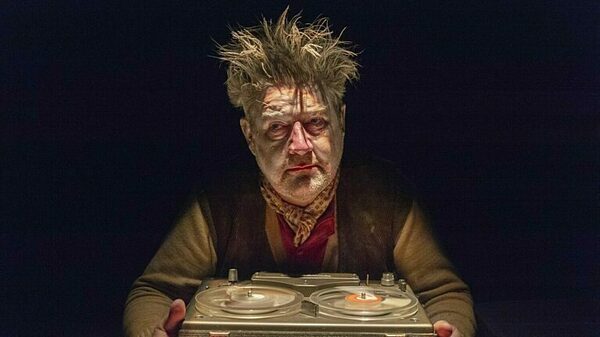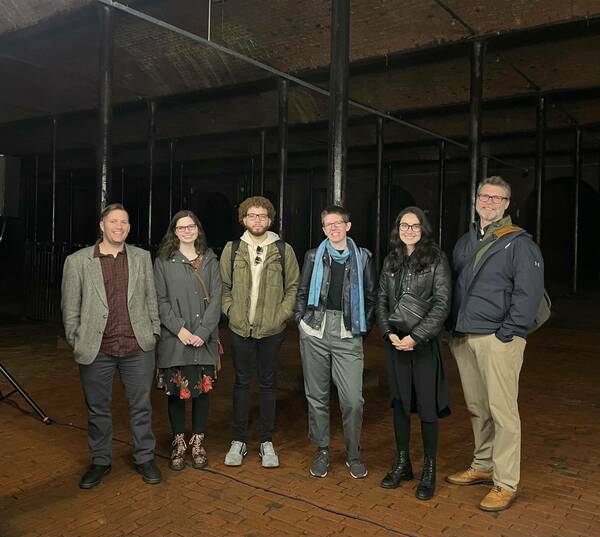
Samuel Beckett wrote his 1982 short play Catastrophe for the playwright and political dissident Václav Havel, who was a political prisoner then in the Czechoslovak Socialist Republic.
Catastrophe, like so much of Beckett's oeuvre, seems to offer very little hope in a world of absurd power disparity. And yet, Havel wrote to Beckett to say that he found in the work "a great joy and emotion" that helped him "to live on amidst the dust and baseness" of prison.
Havel's ability to find hope and sustenance in what seems to be such a bleak body of work points to the perverse but powerful effect of Beckett's drama.
Hope was the overarching sentiment expressed by theater-goers who, just this week, experienced the staging of four of Beckett's lesser-known plays—Catastrophe, Ohio Impromptu, Words and Music, and Ghost Trio—as well as the iconic Krapp's Last Tape. The plays were staged for the three-day "Beckett: Confined" festival (May 6-8) hosted by the University of Liverpool’s Institute of Irish Studies, in partnership with the Keough-Naughton Institute for Irish Studies, Culture Ireland, and Unreal Cities.
As a new postdoctoral fellow at the Institute, I had the good fortune this Spring semester to guide five Notre Dame English graduate students enrolled as Irish minors through a course of study to prepare for the festival. Heidi Arndt, Zay Dale, Arpit Kumar, Marie Shelton, and Kristen Sieranksi were the five students in a group we called “the Becketteers.” Once at Liverpool, in addition to attending performances, we ran discussion groups in conjunction with each play. Our goal was to help tease out the way hope and resiliency are actually key features in Beckett's works, though often hidden beneath layers of dispair. These discussions were attended by the general public; faculty, undergraduate and graduate students from the University of Liverpool; and scholars throughout the United Kingdom who specialize in Beckett—most notably James Little, who delivered the festival’s keynote.
For more about the Festival, see the program for “Samuel Beckett in Confinement.”
_____________
Julian Breandán Dean is a postdoctoral research fellow at the Keough-Naughton Institute for Irish Studies. He recently completed his PhD in the English department at Notre Dame. His dissertation examined how, in various postcolonial settings, authors like W. B. Yeats, Wole Soyinka, and Athol Fugard used tragedy to conceive alternatives to the nation state.
